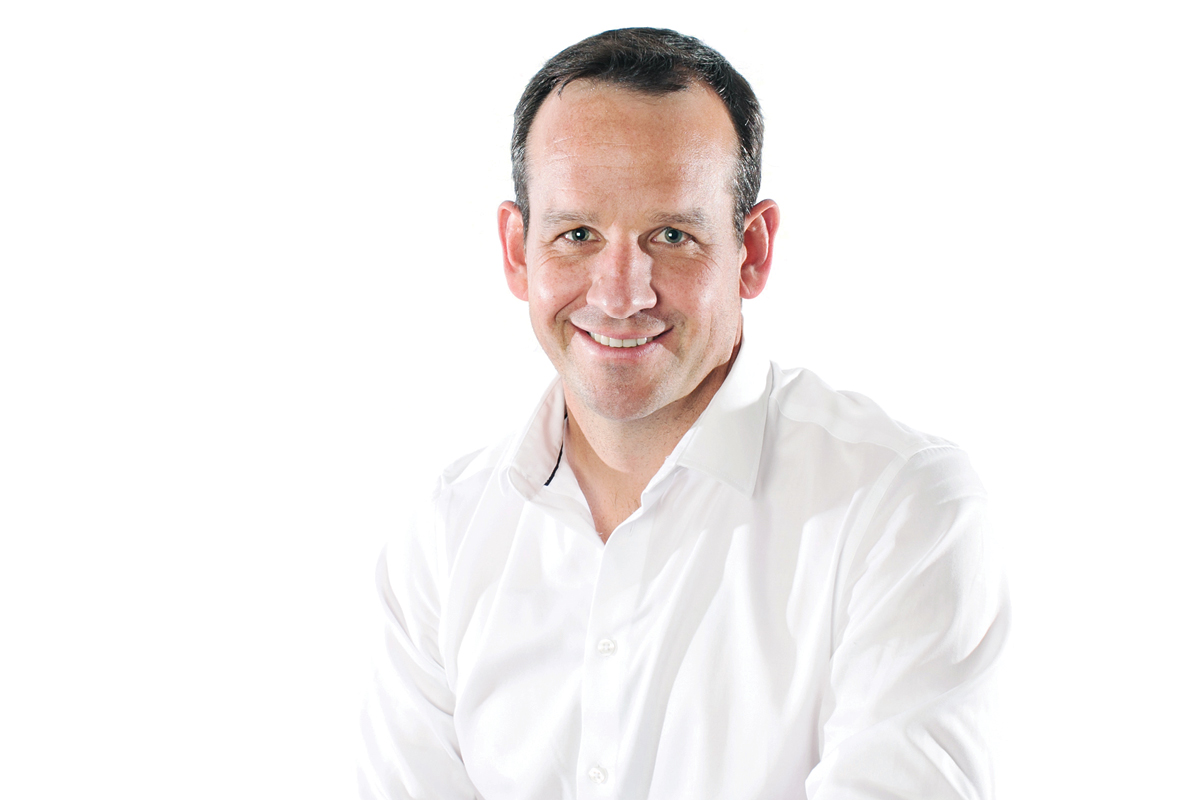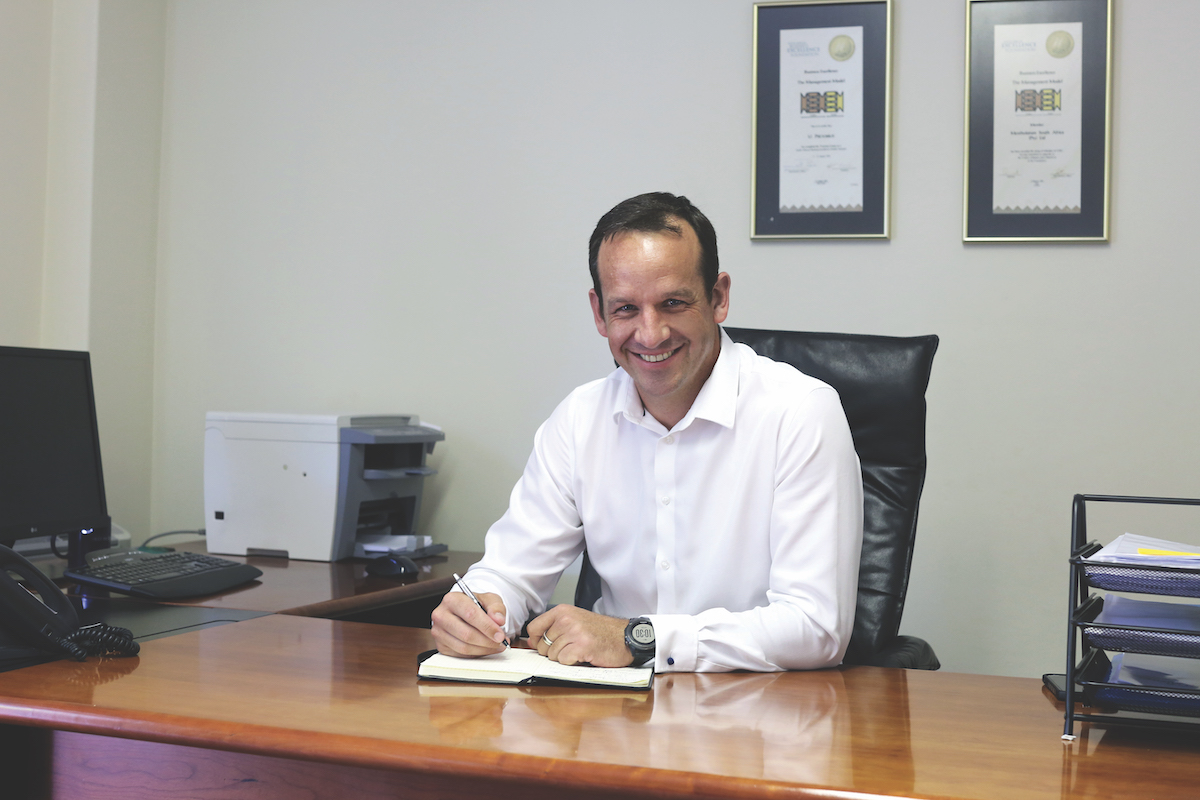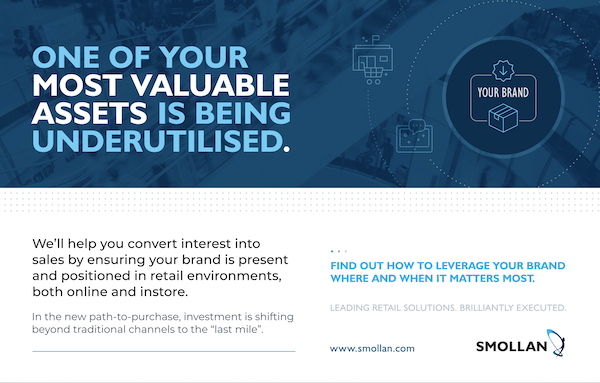Originally an accounting consultant for PricewaterhouseCoopers in South Africa’s East London, Andrew Lawlor says his ambition when he started working was to one day become a finance manager.

However, after he left the firm, he spent three years as an accountant at Johnson & Johnson, where he says his experience with the company’s leadership led to a change of heart and an interest in pharmaceuticals.
“They gave me a lot of scope in my early years to learn new skills, forcing me into new aspects of finance and, later, supply chain and customer development. They exposed me to the full operations of the business and let me learn about the company’s internal functions, locally and abroad. I felt engaged. It meant that as my career progressed, I was in a position where I was helping people live better lives within their communities.”
Nowadays, Andrew laments how companies are disinclined to provide opportunities to employees like Johnson & Johnson did for him.
“When I started, I was lucky to have leaders around me who provided support and gave me the latitude to go where I wanted to go and really challenge the status quo,” he says. “They were happy if I tested something and failed. That wasn’t a problem because they were encouraging the learning process.”
With this support, Andrew spent the next 14 years at Johnson & Johnson working across finance, supply chain, sales and marketing. It was that experience that drove Andrew to join The Mentholatum Company, Inc, a manufacturer of non-prescription pharmaceuticals, in 2018 as Managing Director.
He tells The CEO Magazine that when he joined he did so out of a desire to develop his commercial end-to-end leadership expertise. “The idea of helping a Japanese-owned business with quality technologies in health care to grow in Africa was appealing to me. It meant I would have the scope to manage the whole business as opposed to just focusing on a single, core function.”
That was important for Andrew. With what he’s learned through diversifying his skills, he admits that he never wanted to stick to having to do the same work every day.
“I didn’t want to be a salesperson only looking after sales or a supply manager looking after nothing but supply chain. At Mentholatum, the local managing directors or general managers are truly end-to-end commercial leaders. I thought that was exciting, as opposed to being part of big business that is restricted and slow to react to market dynamics.”
Setting his own agenda has been important to Andrew. Since he joined Mentholatum, he says that he’s been able to focus on expanding the business in Africa and help people throughout the continent gain access to the basic, non-prescription pharmaceutical goods that the company produces.
“I’ve focused on developing a clear strategy for growth, which means understanding our consumers, retail partners and suppliers and knowing how to keep their interests aligned. I must believe in the products that we sell.
“I’ve focused on developing a clear strategy for growth.”
“There are amazing global technologies that are helping people live better, healthier lives, but African consumers don’t have access to these products. It’s important the business has a presence in this continent because there are many opportunities to provide these technologies to the people of Africa.”

Moreover, Andrew says it’s important to him that local leadership drives that expansion.
“Each country in Africa is different, with a lot of complexity. Businesses being led by local experts who understand the global offering are the ones winning; you have to understand the market dynamics. People end up asking, ‘Who are the consumers? What are the market challenges? What are the geopolitical issues?’ If you don’t have people with the right knowledge, you’ll get leaders who come in, stay for a few years and then leave having not established anything sustainable. To build something sustainable, we need to create a strategy, align the team to it and truly own the execution of the plan.
“From a macroeconomic perspective, Africa is a challenging continent to do business in. Here in South Africa, our currency has been trading in a 35% range this past year, and that’s been difficult when it comes to importing materials, particularly when we are forced to pass the cost on to the consumers. That’s why it’s important to have someone leading the company who is aware of the issues and knows how to operate in the market.”
Andrew says that among the unique challenges in South Africa is the impact of “load shedding”, where local electrical utilities cut power due to there not being enough power generation to support the power demand.
“We need the ability to stay agile, because load shedding is not something we can completely prepare for. It’s a difficult thing to manage from an operational standpoint.”
He’s also wary about what consumers can afford, and the need to tailor product pricing and pack size in a way that considers the wages of workers.
“Many people are paid daily and the priority is more than likely transport and food which will consume a fair amount of this daily wage. So the price of the product and where you shop is a massive influence in determining how manufacturers go to market.”
With those challenges in mind, Andrew says the importance of his job is in ensuring people have access to Mentholatum’s products so they can live better lives.
“If I see a teenager with acne, I know that the products we provide can help them become more confident. If someone is living with chronic pain we can offer an alternative to prescription painkillers. People can live a more sustainable life with the products we provide.”
Proudly supported by:



